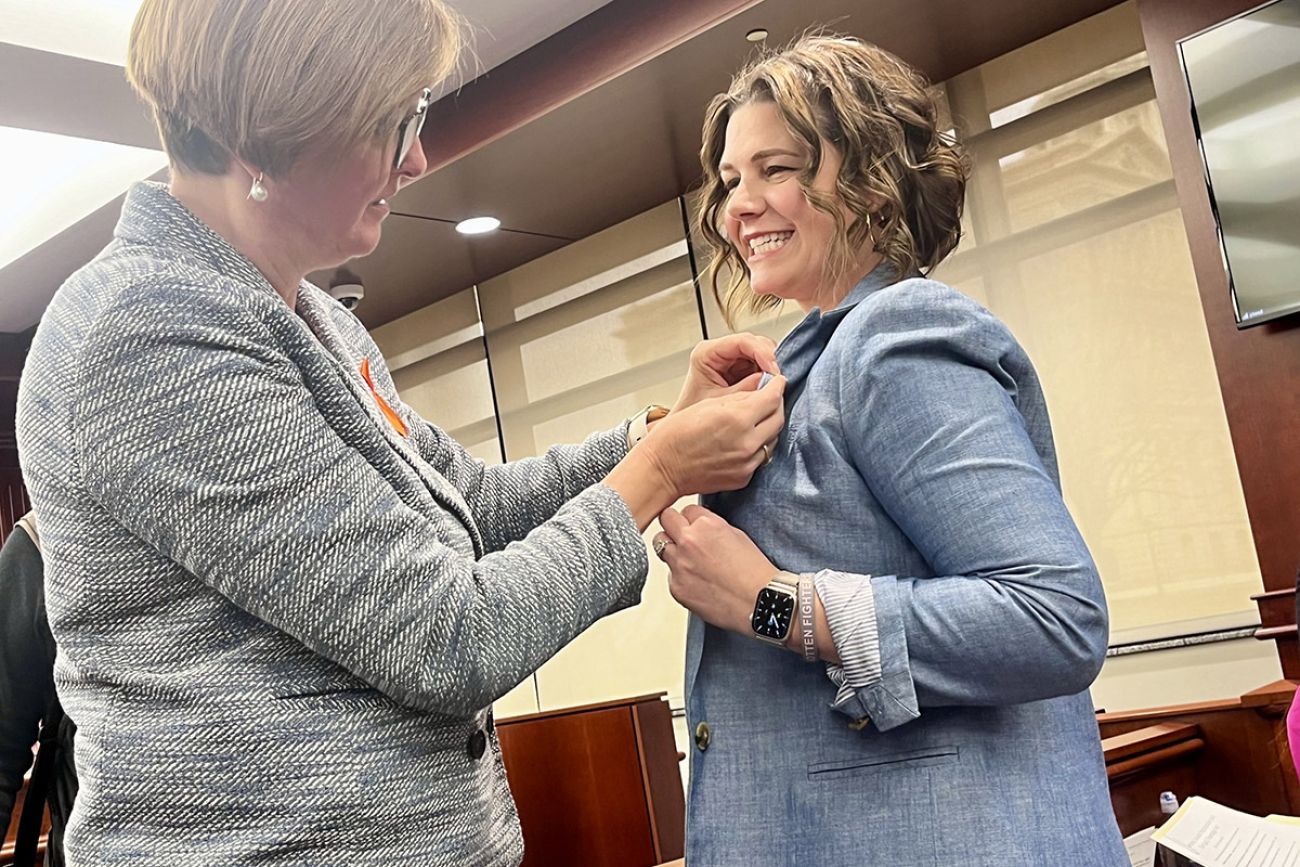Michigan makes paid surrogate pregnancies a crime. That could change

- Surrogacy contracts are illegal in Michigan, but a series of bills in the Michigan Senate would change that
- Supporters say couples and their surrogate deserve a clear framework to establish parental rights and compensation
- Opponents, however, say existing Michigan law protects women from exploiting and helps prevents trafficking
LANSING — For more than three decades, Michigan has made it a crime for prospective parents to hire paid surrogates, but that may soon change under a major proposal making its way through the state Senate.
A series of bills already approved by the House would amend Michigan law to establish the Assisted Reproduction and Surrogacy Parentage Act, providing legal guardrails to a procedure which otherwise has few in the state.
The legislation would establish clear parent-child relationships under surrogate agreements, including what to do in the death of an intended parent, while outlining the rights of a surrogate mother in the process.
Related:
- Michigan Democrats push to expand birth control access, boost supplies
- Whitmer to call for more family planning funds in budget proposal
- Whitmer signs pared-down abortion access bills in Michigan
A woman would have to be at least 21-years-old, given birth at least once before and pass a battery of physical and psychological tests to qualify as a surrogate and carry a child for another family.
“These bills not only update Michigan law, but would put Michigan at the forefront of access to fertility health care,” said Rep. Samantha Steckloff, D-Farmington Hills, a lead sponsor on the package.
Steckloff personally became unable to have children following chemotherapy for breast cancer. But having frozen some of her eggs prior to radiation treatment, Steckloff said surrogacy could one day enable her to still have biological children with her husband.
Current state law, however, would stop her from even arranging a compensated surrogacy. Just the act of signing a paid surrogacy contract is a misdemeanor punishable by up to 1 year in prison and a $10,000 fine.
Arranging such a contract is a felony punishable by up to five years in prison and a fine of up to $50,000.
Michigan appears to be the only state in the country with criminal penalties for paid surrogacy.
Louisiana in 2016 decriminalized paid surrogacy but established tight parameters that still make the process more difficult there than other states. Nebraska won't enforce surrogacy contracts, but signing them is not a crime.
The Michigan law is designed to deter individuals looking to take advantage of women or traffic babies, said Rebecca Mastee, a policy advocate with the Michigan Catholic Conference, who opposes the package.
“Surrogacy, though, is much more than just helping someone have a baby … surrogacy exploits women,” Mastee said, pointing to a European Union resolution urging the prohibition of surrogate pregnancies.
She painted a picture of Michigan becoming a “destination for wealthy individuals or couples from countries where the practice has been banned” should the package, as written, become law.
Critics also questioned whether the bills would infringe on a surrogate’s reproductive rights. “While a woman cannot be physically forced to abort, if she refuses, heavy legal and financial consequences may be imposed on her,” said Genevieve Marnon, legislative director for Right to Life Michigan.
Steckloff, however, called those concerns “a huge boogeyman.”
She was among the handful of women to testify in favor of the bills who either did, or planned to, utilize surrogacy. Some former surrogate mothers also spoke in favor of the legislation, like Lauren Vermilye of Grand Rapids.
Vermilye said she served as a surrogate for fellow Grand Rapids resident Tammy Myers, a mother unable to conceive additional children after being diagnosed with breast cancer at age 33.
“My husband and I had talked about this … We had friends and family that struggled through infertility and other medical issues that prevented them from being able to do it on their own, and I thought, ‘I would so be willing to do that’,” Vermilye said.
Myers and Vermilye met online, and the two instantly hit it off according to the pair, who arranged what’s referred to under Michigan law as an “altruistic surrogacy.”
Altruistic surrogacies are legal in Michigan – with surrogate mothers eligible to be reimbursed for medical, legal or other pregnancy-related expenses during the pregnancy – so long as the surrogate is not outright compensated for her efforts.
Vermilye became pregnant with twins, a boy and a girl, both of which were biologically related to Myers and her husband, Jordan. But when the pair were delivered prematurely in 2021, it thrust both families into a nearly two-year long legal battle that brought a whirlwind of financial stress, emotional turmoil and national attention.
That’s because the birth certificates listed the Vermilyes — not the Myerses — as the twins’ parents, even though both families were adamant the children belonged to, and with, the Myerses.
A pair of judges in Kent County disagreed. They ruled that the agreement the families operated under throughout the surrogacy was not legally enforceable in Michigan.
Jordan and Tammy Myers were finally able to bring home son Eames and daughter Ellison in 2022 – but only after adopting them.
“Despite finally being granted legal parenthood of our twins almost two years after they were born, our wounds from this situation are still raw,” Tammy Meyers said. And that, she added, has cast “ a long shadow over the cherished memories that we missed.”
See what new members are saying about why they donated to Bridge Michigan:
- “In order for this information to be accurate and unbiased it must be underwritten by its readers, not by special interests.” - Larry S.
- “Not many other media sources report on the topics Bridge does.” - Susan B.
- “Your journalism is outstanding and rare these days.” - Mark S.
If you want to ensure the future of nonpartisan, nonprofit Michigan journalism, please become a member today. You, too, will be asked why you donated and maybe we'll feature your quote next time!




